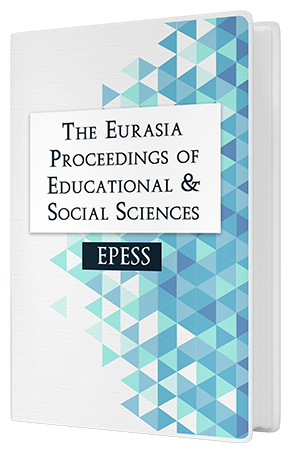Examining Primary School Teachers' 21st Century Teacher and Learner Skills
Keywords:
Social studies teacher candidate, Teacher skills, Learner skills, 21st Century skillsAbstract
In the 21st century, where knowledge has rapidly increased and changed, social order and individual needs are also rapidly changing. However, new jobs and professions are emerging. The ability of countries to keep up with this new formation depends on their training of human potential as individuals who can meet the professional needs of the new century. This will be possible by implementing 21st century skills training programs, which are expected to meet the needs of the new century. The most important task here belongs to the teachers who will apply these training programs. For this reason, for the 21st century skills to be gained to the students, teachers with these skills must be trained first. In this direction, the aim of the research is to examine the level of pre-service teachers who will be both learners and teachers of the 21st century and to determine whether the level of possession of these skills differs according to gender and class variables. The research was done with relational screening model. The universe of the research consists of 2nd, 3rd, and 4th year students of İnönü University Faculty of Education Class Teaching in the 2019-2020 academic year. It is aimed to reach the entire universe. Mann Whitney U and Kruskal-Wallis H Test were used for data analysis. 21st century teacher skills scale and 21st century learner skills scale developed by Göksün (2016) were used as data collection tools. As a result of the research, there was a significant difference in autonomous, managerial, productive, and flexible teaching skills according to gender and grade level.Downloads
Published
Issue
Section
License
Copyright (c) 2020 The Eurasia Proceedings of Educational and Social Sciences

This work is licensed under a Creative Commons Attribution-NonCommercial-ShareAlike 4.0 International License.
The articles may be used for research, teaching, and private study purposes. Any substantial or systematic reproduction, redistribution, reselling, loan, sub-licensing, systematic supply, or distribution in any form to anyone is expressly forbidden. Authors alone are responsible for the contents of their articles. The journal owns the copyright of the articles. The publisher shall not be liable for any loss, actions, claims, proceedings, demand, or costs or damages whatsoever or howsoever caused arising directly or indirectly in connection with or arising out of the use of the research material. All authors are requested to disclose any actual or potential conflict of interest including any financial, personal or other relationships with other people or organizations regarding the submitted work.




